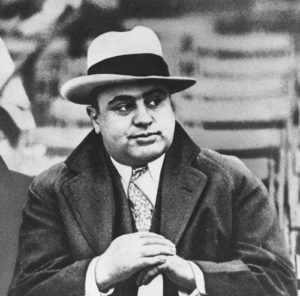Most people (in the USA) believe in voting. The truth is: Don’t bother voting. Your vote doesn’t matter, and your time can be far better spent elsewhere.
As usual our prompt:
Q: What important truth do very few people agree with you on?
A: “Most people believe in x, but the truth is the opposite of x.”
I think voting isn’t a good use of time.
You’re probably inclined to say “but Josh, this isn’t really that uncommon a belief! There’s 320 million people living in America, plus the whole electoral college thing; at some level we all kind of know that our votes don’t really matter. It’s more the principle of the thing.”
I agree.
But my argument is a little more specific, and a lot less defeatist, than just the above. It’s not so much that your vote doesn’t matter; it’s that in 2016, there are way more valuable things you can be doing than just voting.
Let’s look at an extreme example: Hillary Clinton.

We all agree that my vote doesn’t matter, but have you considered the notion that that Hillary Clinton’s vote doesn’t matter either?
It’s true. Even though she’s got everything in her world on the line, she could vote for anyone on the planet come general elections and it wouldn’t matter one bit.
Any individual’s vote is unimportant. The only thing that’s really valuable is getting all of your peers to vote.
To do that, you need two things:
- Credibility
- Campaigning
On a purely practical basis, Hillary has to appear to have voted. We (her peers and extended-peers) have to believe that she votes, otherwise we won’t bother listening to her tell us how to vote. She has to make an appearance at a polling booth, and step behind the curtain for a reasonable amount of time — Bill Clinton could be waiting back there to surprise her with a Smirnoff Ice, wouldn’t matter — Hillary will appear to have voted and her credibility will be intact.
From there, the real thing that matters, the real thing that’s worth her time, is campaigning. Hillary’s vote will only move the popular election results by 1. Her speeches, her advertisements, and her tweets will move the popular results by millions, and will move the electoral results by dozens and could conceivably swing the election in her favor. Which is the whole idea of running for President in the first place. (Her campaign, of course, falls flat if we don’t believe that she believes in voting. That’s why credibility came first.)
This seems kind of obvious when we lay it out in terms of Hillary, but let’s bring it back to me and you.
You and I are tacitly supposed to keep our votes private. Most of my peers leave the political prognosticating to TV pundits and to insane people who feel like they have to share a new Bernie Sanders / Feel the Bern / 420BlazeIt article every 5 minutes, and we formulate our own opinions in the isolation of our own homes.
Part of this is that it’s taboo to talk politics. Our feelings on politics can be pretty central to our personal beliefs, and pretty divisive. People get into fights, breakups, and worse over differences in political alignment. Safer to not bring it up and ignorantly enjoy your friends’ company and the 999,999,999 other things you could be talking about instead of the government. So we tend to keep hush. I myself only have very limited ideas on the political alignments of my close friends — just not a metaphorical crocodile I’ve really ever thought about prodding until I decided to write this essay.
The other part of this voting privacy situation is by manufactured design: In the early days of voting, people were pretty susceptible to being bullied and intimidated into voting differently. If you kept your feelings private, and you voted behind a curtain in a 1-person capacity booth, it was substantially harder for the Al Capone-types to really exert much influence. Some polling booths I’ve used will physically disable the voting buttons until the drawstring on the privacy curtain is pulled all the way shut.

But now it’s 2016 and a couple things have changed:
- I could be wrong, but I don’t really think organized mobster crime is that big a deal anymore
- You now have way, way, way more power than ever to express yourself and exert broad (positive, not-mafia-like) influence in your network
You could probably very safely get away with voting without drawing the privacy curtain.
On election day, you could spend the ~3 hours finding a local polling place, commuting there, farting around in a line for an eternity, and voting — not to mention first registering to vote months beforehand, if you haven’t done that yet — and all that effort will move the popular election by 1.

Or you could spend 3 hours writing a blog post, or a facebook thing, or an email thing, or a Snapchat thing, or whatever, and send it to your friends. If you do that, you might convince ten, or a hundred, or ten thousand people to register to vote, and to consider voting for your side. If you’re public about your voting preference, you’ll be orders of magnitude more powerful. I’d argue this might even make you a better American.
If we’re being candid, I (Josh) don’t actually have to go do the voting thing come November 8th. I just have to insinuate that I’m planning on doing it, and after the fact, tell you that I did. If I skip voting, but convince 10 friends to vote, I’ve still used my time 9x as effectively. (Hillary, by contrast, does at least have to appear at a polling booth because a camera crew will be following her. But again, as soon as she’s on the other side of the curtain, she might as well fire up Angry Birds or Neko Atsume.)
I do, either way, at this point have to tell you who I’m planning on voting for (and hope that you’ll disregard my threat of free ridership in that last paragraph).
As of July 2016, I’m planning on voting for Hillary Clinton.
I’m not so crazy as to try my hand at voting for a third party / runner up like Bernie Sanders.
As for Trump… he’s always felt like a bad idea, but it’s taken months for me to stumble upon the correct, succinct, educated argument for why he actually is a bad idea. That argument is here. The argument is not “his hair is goofy and his face is orange!” or “he’s crazy!” which are relatively worthless petty arguments that stoop to Trump’s preferred flavor of debate. Rather, the argument is a tremendously worthwhile 7-minute read on why, with laser-precision, regardless of Trump’s actual policies, his candidacy undermines what it means to have a country like America.
I have some other thoughts on Trump in this indented section here:
Could I be convinced to change my mind and vote Trump in a few months?
There are facets of Trump’s campaign that I honestly find likeable. I really like the idea that a guy who has no background in politics can launch a platform and succeed — through that lens, Trump seems like he’s a better representative of the American people than someone who’s spent their life laboring and networking in upper echelon government and social circles.
For me to be convinced to switch, it might take a complete heel-turn on Trump’s part. Think, like, the reveal in The Wizard of Oz, where the Wizard turns out to be just a regular dude who figured that nobody was going to listen to him if he behaved normally, so he put on a show in order to get people to pay attention, but in the end it’s blatantly clear he’s just a regular dude. That’s probably what it’d take. But I dunno; maybe you can surprise me with a better argument.
Failing that, I think the very best thing Trump could do for America would be to lose the general election by like a 70/30 split. Any closer than that and next election someone even crazier is going to show up to try and out-Donald the alpha model to get over the hump. Less than that and the collective conscience will feel that the political outsider model never really stood a chance and it’ll be back to business as usual. But if Trump lands 30% as the Bad Cop outsider, he’s paved the way for a Good Cop outsider to reap the benefits in 2020. And in that way, he could actually deliver on his promise of helping to make America great again.
If you think you want to vote for Trump, that’s okay. I think Hillary is a better representative model for what I believe is good about America. I hope that I, and the very articulate argument in the article above, can convince you of that. This whole essay is kind of a risky thing to publish and I really hope it doesn’t devolve into a political shit storm.
Anyway. If you’ve only got a few hours to spend on the American Way this year, I don’t think you should vote for Hillary Clinton come November 8th. Instead, before November 8th, take those few hours and talk with your peers about it. Don’t bludgeon anyone with clickbait and finger-pointing and rage-inducing pabulum. Talk about it. Make a clear & intelligent case, listen open-mindedly, accept the possibility that some people will disagree, and encourage your counterparts to vote — or not just to vote, but to register to vote, because telling unregistered people to vote is worthless. Then on the 8th do whatever you want.
(I promise you that I’ll be voting on the 8th, but maybe… just to be on the safe side… you shouldn’t ask me too many nuanced questions about my whereabouts that afternoon.)
Most people believe that voting is the most important way you can participate in the American government & presidential election. The truth is that campaigning is far more powerful — and in 2016, we should feel empowered to have sane, open-minded, persuasive discussions about politics.
Tell your friends.
